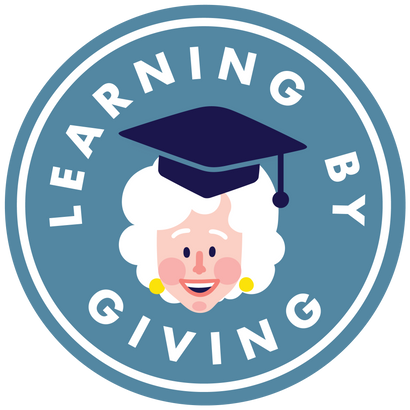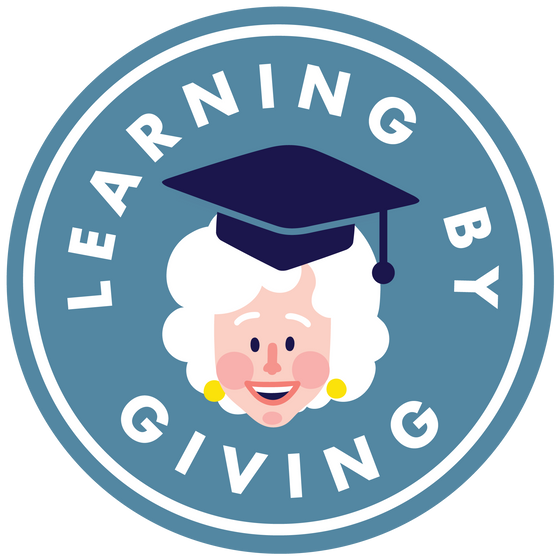What is Philanthropy? It's Complicated.

Rebecca Riccio: Juffali Family Director, Social Impact Lab, Northeastern University
An essay titled “What Is Philanthropy?” would seem like a logical and straightforward entry point into an app on giving. Surely, we must have a clear position on a practice that is central to Learning by Giving’s mission and our faculty members’ teaching, right? But the truth is, philanthropy is complicated. Accepting its many nuances with humility, curiosity, and patience is the first step toward getting better at it.
Every semester in my course about the nonprofit sector and philanthropy, I challenge my students to leave their preconceptions at the door; to grapple with the complex challenges of giving effectively and ethically; and to ponder big ideas and their own values as they study and practice philanthropy. I invite you to do the same as part of the Learning by Giving community.
Let’s start our learning journey with a statement that might seem provocative, given the purpose of this app: philanthropy is not necessarily a “good” thing. This isn’t to say that philanthropy is “bad.” Rather, like many tools, philanthropy can do much good in the world, but it can also cause a great deal of unintended harm - especially when it’s employed with insufficient understanding of its power.
Consider, for example, how much influence a foundation with billions of dollars in its endowment can have on critical issues such as health, social justice, and the environment. Should we simply accept that one foundation may have greater say than the rest of us in how we tackle society’s most pressing problems? On the other hand, if those resources are needed and the foundation is generously giving them away, shouldn’t we simply be grateful?
See what I mean? It’s complicated.
Here’s another confounding consideration: for every philanthropist aligned with our own personal interests and values, there may be others who hold opposite views and actively work against everything we believe in. Things get even more complicated when we consider that the philanthropists who control great wealth in an era of increasing income inequality often don’t share the identities and lived experiences of the people and communities whose lives they are trying to influence. Who, then, gets to decide what’s important? And who gets to decide how we define and measure success? For all the good it can do, philanthropy can also have consequences that we - or its intended beneficiaries - might not like, agree with, or actually benefit from.
Of course, most of us aren’t giving so much that we can shift political and social agendas on a grand scale. We’re simply trying to make the world a better place. That impulse – to give in support of the greater good – is an essential part of the social contract in the United States. Indeed, Americans have created a social safety net and woven the cultural fabric of our communities based on the expectation that everyday people will step up to meet many of society’s most critical needs by forming and funding charitable organizations. From cradle to grave, from celebrating our shared achievements to managing our most devastating catastrophes, philanthropy touches all our lives.
It’s important to remember, though, that no matter how generous our impulses or how great the needs in our communities and around the world may be, few of us will ever have limitless resources to commit to philanthropy. Being thoughtful about how we give matters if we aspire to be both effective and ethical philanthropists, even if only on a modest scale.
For each of us, then, our practice of philanthropy should begin with an honest reflection about why we give, how much money we can afford to give, and how much time and rigor we choose to invest in our philanthropic decision making. Each month, the Learning by Giving app will challenge you to contemplate these and other questions in the context of thought-provoking content, activities, and conversations.
We can’t promise you answers to all these questions or guarantee that reflecting on them will be easy, but we do hope that being a member of this community will inspire you to embrace a lifelong commitment to philanthropic learning and reflection. After all, there is no perfect way to give, but there are ways to get better at it. This app is our commitment to provide you with resources that will support you on your journey. We look forward to learning and giving alongside you.
Reflections:
If possible, find a quiet space; and, take a few moments to reflect on the following questions:
- How has philanthropy impacted you or someone close to you? How has philanthropy impacted your community?
- What has been your most rewarding giving experience (if any)? Why?
- In what way(s) has your generosity changed your ideas about giving?
While these thoughts about your experiences with philanthropy are fresh in your mind, make a commitment to spend some time in the coming weeks thinking about your giving in practical terms. In particular:
- Why do you give?
- How much money can you afford to give?
- How much time and rigor do you want to invest in your philanthropic decision making?
You don’t have to have answers to these questions right away. Just take note of where your thinking is now so you have a touchstone to look back on as you continue your Learning by Giving journey.


